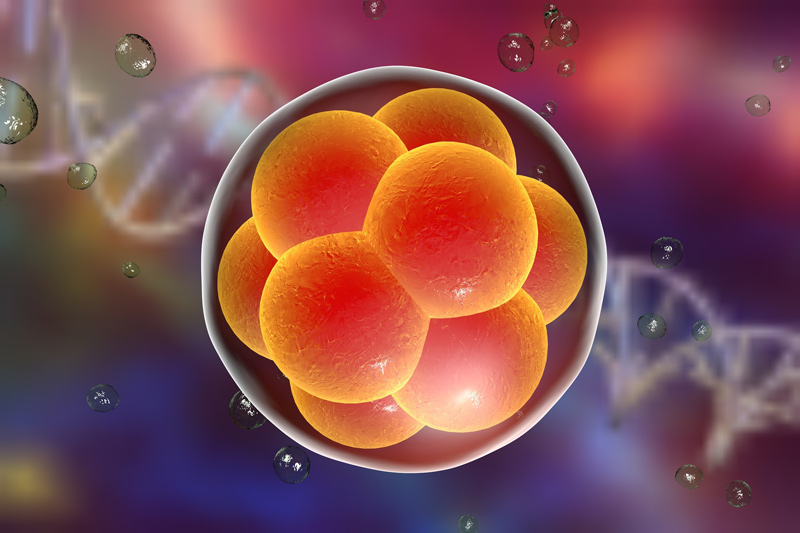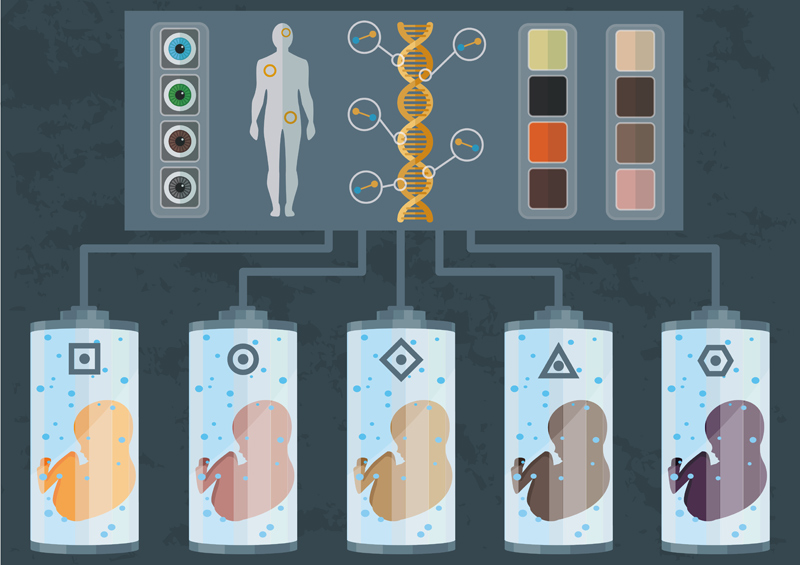
16th February 2017 Gene editing of human embryos receives backing from U.S. science committee A committee from the US National Academy of Sciences (NAS) and National Academy of Medicine (NAM) has given cautious backing to gene editing of human embryos.
Clinical trials for genome editing of the human germline – adding, removing, or replacing DNA base pairs in gametes or early embryos – could be permitted in the future, but only for serious conditions under stringent oversight, says a new report from the National Academy of Sciences and the National Academy of Medicine. The report outlines criteria that should be met before allowing germline editing clinical trials to go forward. Genome editing has already entered clinical trials for non-heritable applications, but should be allowed only for treating or preventing diseases or disabilities at this time, the report says. Genome editing is not new. But the emergence of powerful, precise and less costly genome editing tools, such as CRISPR/Cas9, have led to an explosion of new research opportunities and potential clinical applications, both heritable and non-heritable, to address a wide range of human health issues. Recognising the promise and the concerns related to this technology, the NAS and NAM appointed a study committee of international experts to examine the scientific, ethical and governance issues surrounding human genome editing. Human genome editing is already widely used in basic research and is in the early stages of development and trials for clinical applications that involve somatic (non-heritable) cells. These therapies affect only the patient – not any offspring – and should continue for treatment and prevention of disease and disability, using the existing ethical norms and regulatory framework, the committee says. However, there is significant public concern about the prospect of using these same techniques for so-called “enhancement” of human traits and capacities such as physical strength, or even for uses that are not possible, such as improving intelligence. The report recommends that genome editing for enhancement should not be allowed at this time, and that broad public input and discussion should be solicited before allowing clinical trials for somatic genome editing for any purpose other than treating or preventing disease or disability. “Human genome editing holds tremendous promise for understanding, treating, or preventing many devastating genetic diseases, and for improving treatment of many other illnesses,” said Alta Charo, committee co-chair and a Professor of Law and Bioethics at the University of Wisconsin-Madison. “However, genome editing to enhance traits or abilities beyond ordinary health raises concerns about whether the benefits can outweigh the risks, and about fairness if available only to some people.”
Germline genome editing, in contrast, is contentious because genetic changes would be inherited by the next generation. Many view germline editing as crossing an “ethically inviolable” line, the report says. Concerns raised include spiritual objections to interfering with human reproduction to speculation about effects on social attitudes toward people with disabilities to possible risks to the health and safety of future children. But germline genome editing could provide some parents who are carriers of genetic diseases with their best or most acceptable option for having genetically related children who are born free of these diseases. Heritable germline editing is not ready to be tried in humans. Much more research is needed before it could meet the appropriate risk and benefit standards for clinical trials. The technology is advancing very rapidly, though – making heritable genome editing of early embryos, eggs, sperm, or precursor cells in the foreseeable future “a realistic possibility that deserves serious consideration,” the report says. Although heritable germline genome editing trials must be approached with caution, the committee said, caution does not mean prohibition. At present, heritable germline editing is not permissible in the United States, due to an ongoing prohibition on the U.S. Food and Drug Administration’s ability to use federal funds to review “research in which a human embryo is intentionally created or modified to include a heritable genetic modification.” Various other countries have signed an international convention that prohibits germline modification. If current restrictions are removed, and for countries where germline editing would already be permitted, the committee recommended stringent criteria that would need to be met before going forward with clinical trials. They include:
"Previously, it was easy for people to say, 'This isn't possible, so we don't have to think about it much,'" said MIT researcher Richard Hynes, who helped lead the committee. "Now we can see a path whereby we might be able to do it, so we have to think about how to make sure it's used only for the right things and not for the wrong things." "These kinds of scenarios used to be science fiction; they used to be seen as far-off hypotheticals," said biotechnologist Marcy Darnovsky from the Centre for Genetics and Society. "But actually, right now, I think they're urgent social justice questions ... [W]e're going to be creating a world in which the already privileged and affluent can use these high-tech procedures to make children [with] biological advantages. And the scenario that plays out is not a pretty one."
---
Comments »
|









